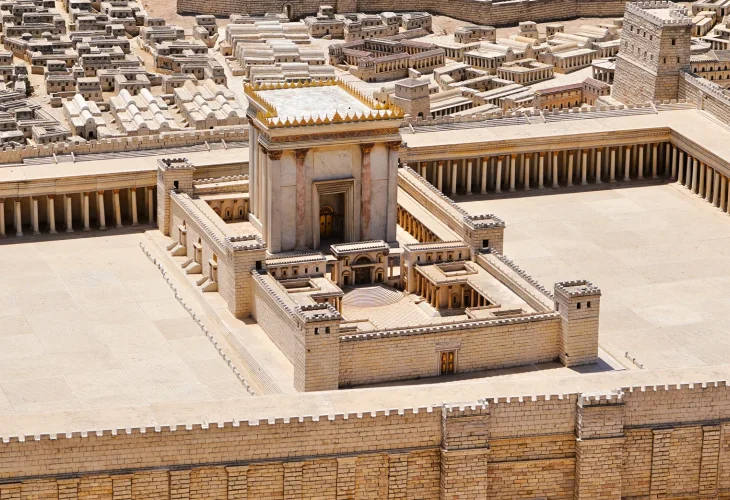From Glory to Destruction: The Unexpected Victory of the Maccabees
Join us over the next three weeks as we unfold the tale of destruction—how the mighty Judean kingdom dwindled, weakened, and ultimately fell to Roman conquest. How did the Romans end up in Judea? What were they seeking? And what role did baseless hatred play in all of this?
 (Photo: shutterstock)
(Photo: shutterstock)Join us over the next three weeks as we unfold the tale of destruction—how the mighty Judean kingdom dwindled, weakened, and ultimately fell to Roman conquest. How did the Romans end up in Judea? What were they seeking? And what role did baseless hatred play in all of this?<\/p>
Our story begins with the Hasmonean Kingdom in 167 BCE, during the Maccabean Revolt. This revolt saw Mattathias and his sons achieve miraculous victories, leading to the famous Chanukah miracle, the purification of the Temple, and the foundation of a Jewish state with Jerusalem as its capital. Despite being few in number, the Maccabees defeated the Greeks in several battles. Eventually, Judah the Maccabee leveraged cracks in the Seleucid Empire (Greek rule over the Middle East) to secure a peace treaty that guaranteed Judean independence.<\/p>
Years passed. The Hasmonean brothers fought various internal and external enemies. In 142 BCE, the Hasmonean Kingdom officially gained independence from the Seleucid Empire. Simon the Hasmonean, son of Mattathias the High Priest and brother of Judah, Elazar, and Jonathan, was formally appointed High Priest and leader of the Jews. Previously threatened by the Seleucid general Tryphon, who even imprisoned him and demanded a huge ransom for his release, Simon formed an alliance with his enemy, Demetrius II, securing a declaration of independence that formally established the Hasmonean state.<\/p>
Demetrius convinced Antiochus to release Judah. The declaration by Antiochus, quoted in the Book of Maccabees, states: "King Antiochus to Simon the High Priest and the people of Judah: I hereby grant you everything the kings before me have granted you. You have the power to mint gold and silver coins in your land. The city of Jerusalem shall be sacred and free, and the fortified cities you have built and all the weapons you have gathered shall be under your control. All that you owed the king and wished to give him, I now forgive forever. When I sit on my royal throne, I shall further delight the Temple of Hashem by adding honor and greatness, and you shall become renowned and glorious throughout the land."<\/p>

